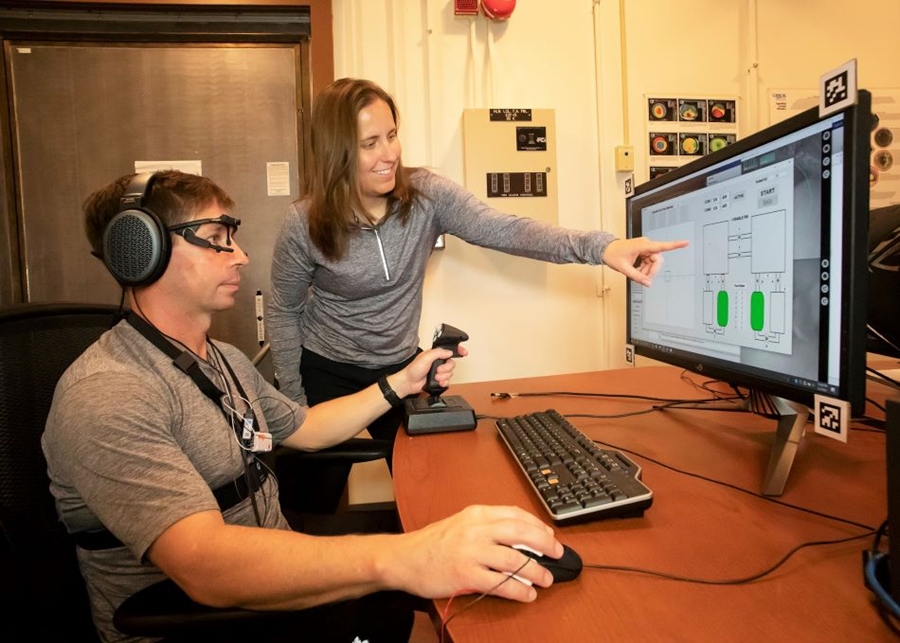Hillary Plummer played basketball, soccer, ice hockey, softball and baseball as a kid. Evenings consisted of practices and homework. Weekends were for competing.
"My life revolved around sports. I can remember having a soccer game in the morning, then changing into my softball or baseball uniform in the car before my next game," she said.
With play came injuries. And an interest in helping treat — or prevent — other players' injuries. The U of A alumna now helps keep Army aviators healthy and performing well in her role as a researcher with the U.S. Army Aeromedical Research Laboratory. She's a post-doctoral fellow with the Oak Ridge Institute for Science and Education.
One of Plummer's biomechanics projects focuses on minimizing flight medics' strain when they load and unload patients. "Flight medics work in very confined spaces in Blackhawk helicopters that require them to be in awkward postures for a prolonged period of time," she said. "These crew members have high rates of musculoskeletal injury."
Plummer's team is also testing wearable sensors designed to keep aviators safe and performing their best. They're using technologies that track physiological variables such as sleep, heart rate, heart rate variability and body temperature to assess the demands on pilots and crew members.
"While some demands of the tactical athlete are similar to those of elite athletes, there are operational requirements that can hinder readiness and recovery," she said. "Our research aims to examine the physiological and cognitive demands specific to Army aviation to determine normal and not normal ranges for safe and effective flying."
Plummer's interest in research started at the U of A while a master's athletic training student. The AT program had recently purchased a motion analysis system and was testing youth baseball and softball pitchers. Although she had played other sports in her hometown of Snellville, Georgia, baseball and softball were Plummer's favorites.
"I was a huge Braves fan as a kid," she said. "I went to lots of games with my parents and friends, and baseball games were the only thing I ever watched on TV."
She was thrilled to be doing research related to her beloved sport. "I really enjoyed having the opportunity to be involved in research at Arkansas and decided to pursue a Ph.D. after I graduated," she said. "Research made me a better athletic trainer because I was constantly looking to solve problems that I would see clinically in the athletes that I worked with."
Plummer served as an athletic trainer at Shiloh Christian School in Springdale, then with USA Team Handball for two years. She completed a post-doctoral fellowship at the University of Southern California, where she researched risk factors for upper extremity injuries in baseball players. She and her USC colleagues attended spring training in Tempe, Arizona, to collect data on minor league players for three years. They examined each player for shoulder range-of-motion deficits, shoulder and hip strength, and core stability. Then they tracked the players' injuries during the season to see if any of the deficits that were present during testing increased a player's likelihood of becoming injured.
"If we can identify deficits that are related to injury, then as clinicians, we can start to develop training programs that target the deficits and hopefully reduce injury rates," she said. "This is work that I find most rewarding."
This story is the latest in a series called the Dean's Spotlight, featuring outstanding students in the College of Education and Health Professions. Visit COEHP's online magazine, the Colleague, for more news from the six units that make up the College. Find out more about the Master of Athletic Training program on the Health, Human Performance and Recreation website.
Topics
Contacts
Shannon G. Magsam, director of communications
College of Education and Health Professions
479-575-3138,
